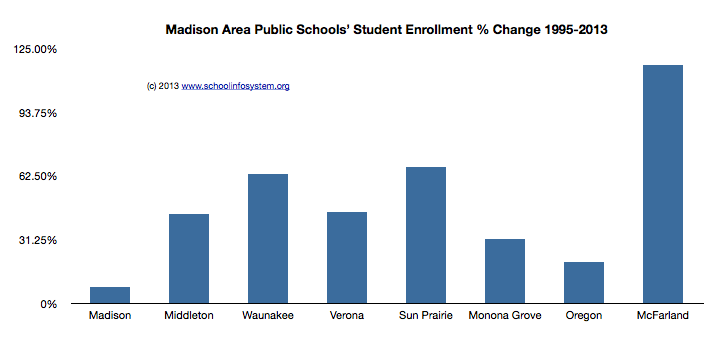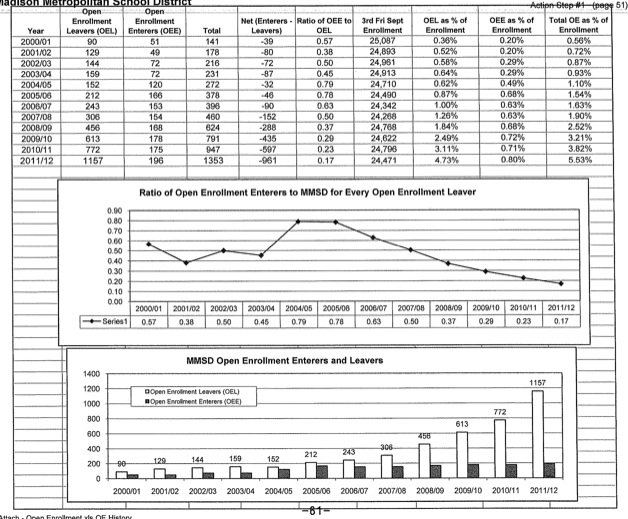Madison Teachers, Inc. Solidarity Newsletter (PDF), via a kind Jeannie Bettner email:
As he described it in February, 2011, Governor Scott Walker “dropped a bomb” on Wisconsin’s public employees, attempting to strip them of their rights to collectively bargain. Now he’s aiming at our kids. Walker’s 2013 biennial budget goes a long way in his plan to crush public education in Wisconsin; a move to privatize via VOUCHERS (i.e. providing funding from the area public school to enable parents to pay tuition to send their children to private or religious schools).
In its press conference on May 17, the Forward Institute released their study of the impact of school funding on educational opportunity. The study found that schools with higher poverty levels have experienced greater loss in funding when compared to more affluent schools across the state. The number of students in Wisconsin living in poverty has doubled since 2007, and since 2007 state funding of public education has fallen to its lowest level in 17 years. Walker’s biennial budget proposes to further exacerbate the situation by expanding voucher schools into nine additional areas, including Madison.
Expanding voucher schools will take away funding from our public schools. Not only are school districts required to pay 38.4% of the cost of each voucher; they lose the ability to count the student attending private/parochial schools in the state aid formula on which the amount of revenue is based. In Madison, a person would receive $6,442 from the MMSD to send their child to a private or parochial school. Yet Madison would receive no additional state aid to offset that cost, so payments come directly from money that would have supported education in Madison public schools. It is projected that in the first five years of vouchers, Madison schools could lose nearly $27 million to vouchers.
….
MTI has received several concerns regarding the calendar, as recently released by the District, for the 2013-14 school year. Among the demands by the District, enabled by Governor Walker’s Act 10, in last year’s negotiations, was that one of the Voluntary Days, August 28, be converted to a mandatory attendance “development day”. It is specifically designated as “development”, not “staff development”. The latter is designated for August 29. Since the 1970’s the Contract provided returning teachers three Voluntary Days, days for which they are paid, but did not have to be at their assigned work site. The new Contract, effective July 1, 2013, reduces that to two days. “All Staff Day” is August 30.
Secondly, an agreement provides that the District has full
discretion as to whether to enable Ready, Set, Goal Conferences. The agreement provides teachers compensation or flex time for engaging parents in such conferences. Because of the proposed cut in State aid under Governor Walker’s Budget, MMSD may not authorize RSG Conferences this fall. They ask that teachers prepare letters inviting parents for such conferences, should funding enable them.
Third, is the issue of Parent-Teacher conferences. The Contract provides that there will be two evenings for conferences and that the day following conferences will also be for conferences with no students present to enable conferences which were not held on the prior evening. The District has failed to list November 13 as being with no students, while they scheduled evening conferences on November 12. The District has proposed to MTI changing the day following each conference to be with students, and having the only “no student” day be November 27, the day before Thanksgiving.
Vouchers are not an existential threat to our local public school structure. Long-term disastrous reading scores are, and merit everyone’s full attention.

